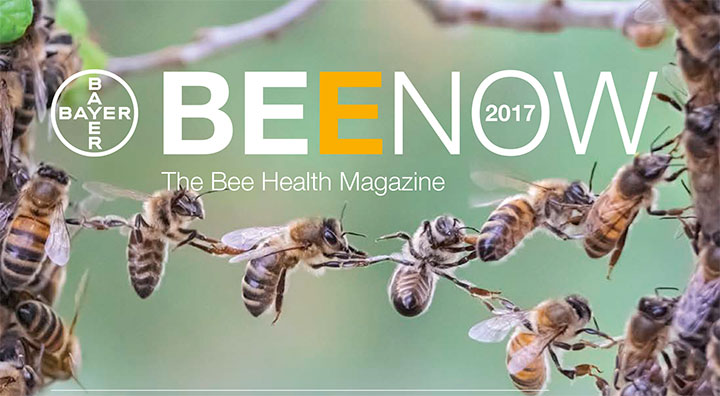In the third edition of the BEENOW magazine produced by the BeeCare Bayer project, an article about RCPol was published.
Read the full text below:
Pollinator-plant relations made simple
In addition to the melon project in Brazil, information is being collected and made accessible to interested stakeholders in two further collaborations. With many more Brazilian crops dependent on insect pollination, one project aims to produce a practical handbook on the pollinators of Brazilian crops. The other project gathers data to produce a pollen catalog which identifies the floral resources, especially the pollen of the relevant plants, which are important for the bees’ diet. It is hoped these will aid beekeepers, growers and other interested parties. For Bayer, generating data and sharing knowledge is paramount for enhancing bee research and developing best practices in agriculture.
The online pollen catalog
Since 2015, Bayer has been sponsoring and supporting the compilation of an online pollen catalog developed by the University of São Paulo (USP), Brazil. In the catalog, named ‘Rede de Catálogo Polínico online’ (RCPol), researchers are including data from various pollen collections around the world. “For the first two years, we focused on generating data related to 542 plant species and identified the floral resources, mainly pollen and nectar, which are important for a bees’ diet,” says Dr Cláudia Inês da Silva, ecologist at the bee laboratory of the USP. To generate the data, the researchers have been sampling pollen in agricultural areas and around apiaries, quantifying the composition and spatial-temporal distribution of floral resources, and documenting them in the pollen libraries of the partnering palynology laboratories. To facilitate identification and make the information easy to access, the team digitizes the plant and pollen images. The project is planned to continue until 2019 in order to enlarge the amount of available data, expanding the pollen libraries of the palynology laboratories of the partnering institutions.
Dr da Silva passionately highlights the power of the generated data: “The pollen libraries can serve as tools for the management of bee pastures and the surroundings of cultivated areas. Making RCPol publicly available will provide information to beekeepers and farmers about the management of plants that are preferentially visited by bees collecting pollen and nectar, which is relevant for honey and pollen production, and for pollination of cultivated plants,” she further explains.
Many research teams are participating and contributing to this joint approach, within Brazil, but also in other parts of Latin America (Argentina and Colombia) and Europe (Germany, France, Spain). “In this project, we see intensive exchange and collaboration within the scientific bee community worldwide,” says Quaglierini. “By disclosing our project results at national and international events, we hope this community involvement will increase even further.”




You must be logged in to post a comment.